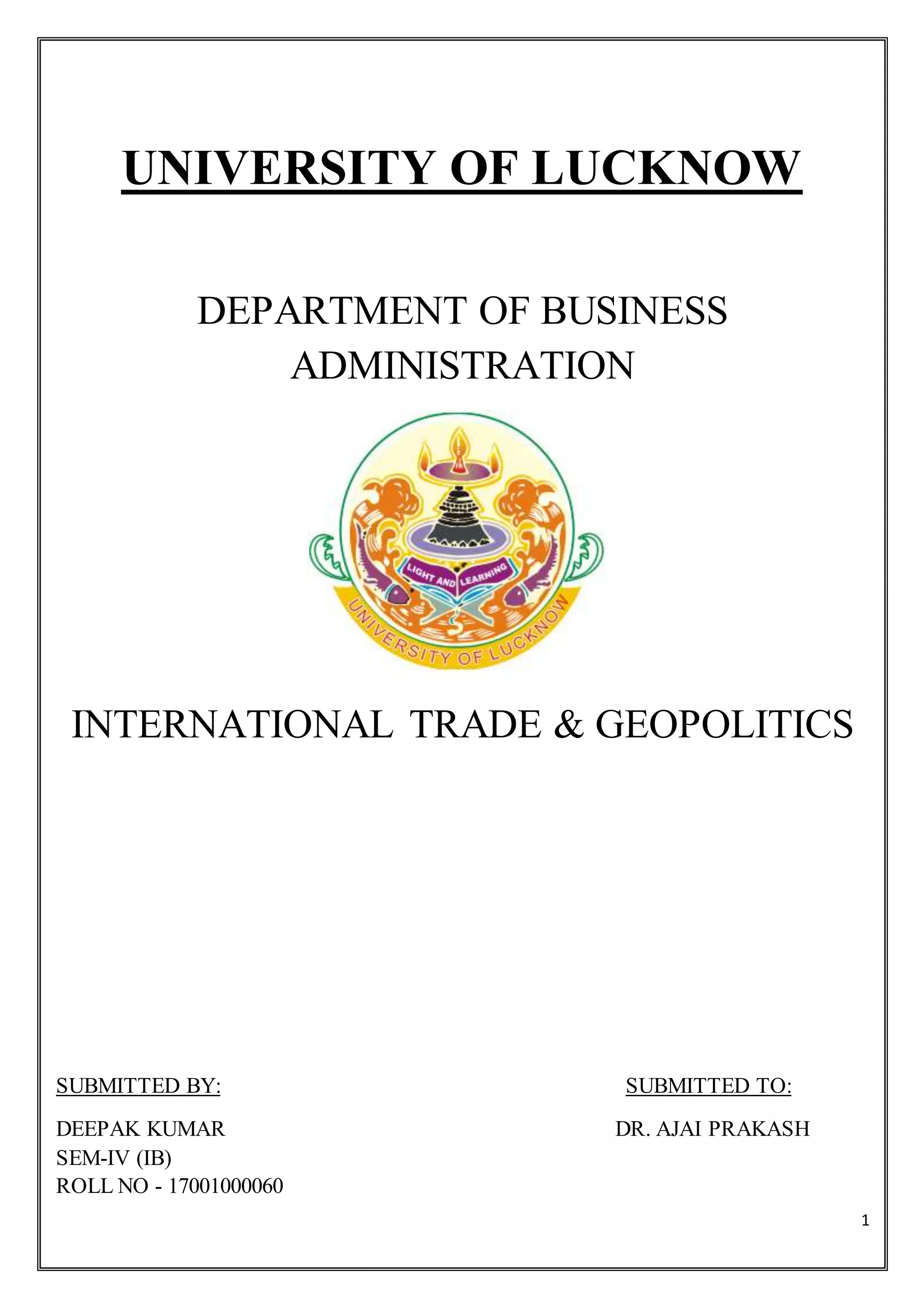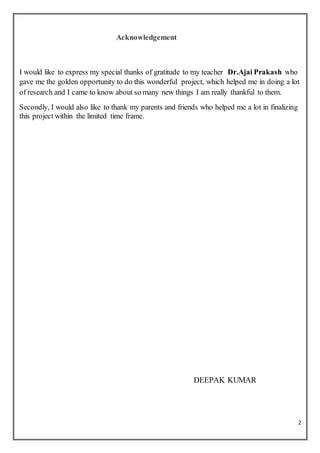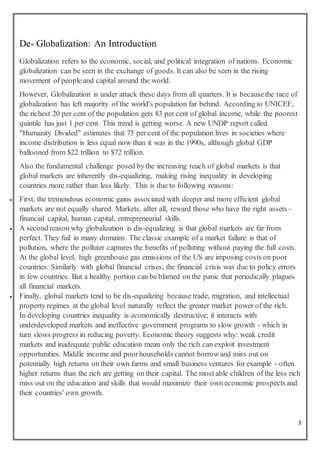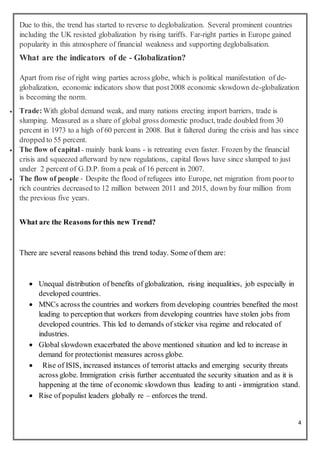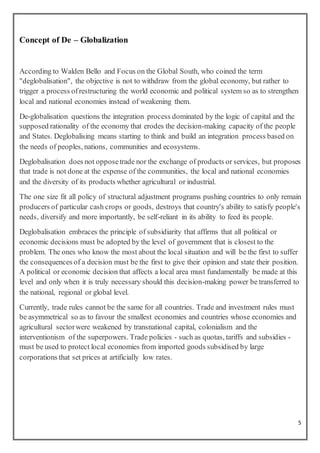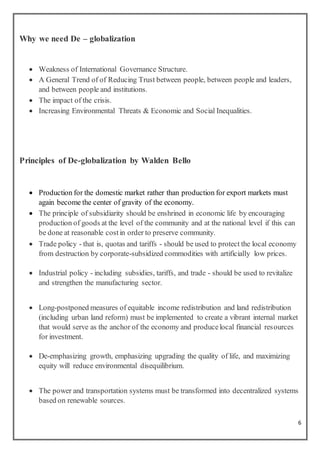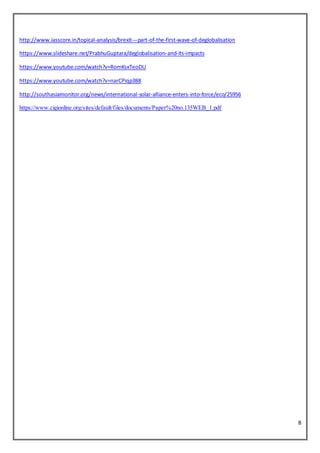The document discusses de-globalization as a response to the negative impacts of globalization, including rising inequality and economic disparities. It highlights that certain demographics, particularly in developing countries, are disproportionately affected, leading to political movements resisting globalization. The author emphasizes the need for a restructuring of the global economic system to prioritize local economies and equitable trade practices.
